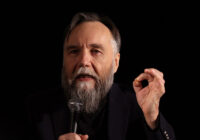Humans have always tried to understand and live their finite lives in relation to infinite possibilities — what could happen, what if, perhaps. Infinite possibilities are unknown unless brought to light through contemplation. For instance, contemplating the future is one of those mindful exercises that may highlight possibilities, probabilities and certainties.
Such contemplations create perceptions of reality — the space between the present and the future is largely foreseeable, but what is foreseen depends on the worldviews of the population. The idea of historical progress — or the direction of the economy, politics, science, technology, knowledge, human development and sustainability — can indicate the future direction of a society.
While contemplating the future, one can acknowledge the challenges of the present, strive for improvement and hope for a better reality. Alternatively, one can fixate on the downsides of the present to develop a vision of an apocalyptic future awaiting in the wings. The latter direction may well produce extremist ideologies that predict existential threats and present extreme solutions in response.
Change of Direction
What if an ideology emerged that questioned the direction of the historical progress that instilled liberal democracy and free market capitalism at the helm? What if an ideology sought to reverse the direction of liberal democracy and laissez-faire capitalism? Such directional shift must instill hierarchy in the place of equality, group identity instead of individual freedom, tradition instead of liberty, government regulations as opposed to regulation by market forces — these are just a few of its key directional reversals.
Capitalism has long been in crisis, confronted by global inequality, wealth polarization and corruption, and accompanied by social unrest. The most recent backlash produced mass protests in Peru, Ecuador, Bolivia and Chile. An ideology seeking to change the direction of liberal democracy and free market capitalism doesn’t aim to patch up the crisis of democracy but aims to overthrow the democratic capitalist system by means of uprooting liberal values.
Have We Seen the Eternal Return of Fascism?
How is this possible? By instilling the values of the illiberal “true right” or the populist new right in the domain of contemporary conservative politics. In the face of an all-out attack from the populist new right that mobilizes the masses by sowing fear and discord, the conservative political sphere is at risk of a targeted takeover that would easily push it to the extremes.
In the 1960s, thinkers of the European Nouvelle Droit — the New Right — promoted their ideological project with the aim of bringing back the “true right” that sought to end free market capitalism and representative democracy. How do you place the illiberal “true right” at the helm without uprooting the social, political and economic order that is globally concentrated on the postwar liberal representative democracy and its way of life? How do you introduce the opposite direction or ideology to minds that are saturated by the prevailing world order? The answer can be found in the idea of metapolitics.
Neo-Fascism With a Human Face
What is metapolitics? Metapolitics is the effort to deconstruct the prevailing ideological and cultural mindset, thereby preparing people for a total transformation. In terms of liberal democracy, the task of metapolitics is to weaken the culture, ideological rigor and mindset that sustain the liberal democratic socio-political and economic order. For instance, it’s the gradual growth of a cultural mindset against the foundations of democracy and capitalism, such as parliamentary democracy — political representation, checks and balances, pluralism; free markets — global trade, private ownership, economic freedom; and liberty — equality, justice, human rights, individual freedom.
The Nouvelle Droite emerged as a counter-hegemonic project that aims to fight liberal politics and what it referred to as the hegemony of the United States. The Nouvelle Droite established an organization to pursue a cultural and ideological struggle against the dominance of liberal moral principles. This organization, the Research and Study Group for European Civilization (GRECE), has a metapolitical task of shattering the monopoly of the liberal democratic moral code in favor of European ultra-nationalism.
GRECE thinkers such as Guillaume Faye explain metapolitics as the spreading of “ideas and cultural values, seeking a complete political transformation in the long run. According to Faye, “metapolitics is the occupation of culture,” unlike politics, which is “the occupation of a territory.” Alain de Benoist, another one of GRECE’s key thinkers, insists on the need for a metapolitical strategy to change the “collective consciousness,” which is rooted in liberal values.
Nouvelle Droite also seeks to physically separate different ethno-cultures in the guise of preserving them, which is a deeply fascist idea wrapped up in the shallow disguise of cultural preservation. This is called ethnopluralism, or the segregation of different ethnicities into ethnically-homogenized territories. As Tamir Bar-On states, ideas of de Benoist and the Nouvelle Droite are nothing more than “neo-fascism with a human face.”
Against Political Philosophy
In the context of the far right’s predisposition for metapolitics, another French philosopher, Alain Badiou, contributed to revamping the concept of metapolitics to a whole new level, justifying resistance — or what he called “emancipatory politics” —against liberal democracy.
Badiou seems to be an unlikely savior of the far right’s metapolitics strategy. His early leanings were on the militant far left, and he was one of the founding members of the Union of Communists of France Marxist-Leninist with Sylvian Lazarus, another far-left-leaning philosopher.
How does Badiou come to echo the ideas of the far right? It’s due to his fixation on unsettling the established political organization and political culture. Adrian Johnston uses the term “left-wing fascism” in reference to Badiou’s ideas. Badiou seems to create an unlikely bridge between the far left and the far right through a new political passage that confuses their established differences.
In fact, Badiou is an agitator: He relentlessly disturbs the established political beliefs, going the extra mile to unsettle the philosophical notions that underlie them. For example, he enters the scene as a troll against mainstream politics and political philosophy, distancing himself from the state, political representation, political parties, centrist politics and political philosophy itself.
Badiou proposes “a series of tactical withdrawals from all forms of political representation.” He rejects representative democracy, considering it “bourgeois parliamentarianism.” According to Badiou, politics is about seeking freedom from the sovereign state and its power apparatus, as the state takes people hostage to its excessive power. He names his brand of politics “freedom” or “resistance politics,” which is precisely the task of keeping the state at a distance. His opposition to political parties is based on the idea that no one can dictate politics except the people who find themselves in real political “situations.”
Badou’s politics “shoots forth organically from within the situation” or from real political “instances.” Political parties don’t have a role to play in such organic real politics. Therefore, his emancipatory politics cannot happen under political parties; his is the “politics without a party.” He rejects the “bond” that exists between “the masses” and their “party” as something that leads to “bureaucratic submission.” Such bonds, as Badiou sees it, lead only to “enslavement or decomposition.”
Badiou isn’t a conformist and doesn’t want to take any form of a centrist position. He displays a militant urge to break with existing political norms. He introduces the idea of “politics unbound” to explain the organic politics of the masses that is emancipatory and liberating from the cult of the state or the bond of a party.
Chaos Is Liberating
Badiou’s fascination with tearing down basic political organization to give way to mass movements of resistance and emancipatory politics is guaranteed to create chaos. And that’s exactly what it seems he wants: Unlike the confinements of order, chaos is liberating. Badiou not only tries to tear down the basic political organization but also, with the spirit of a true rebel, launches an opposition against political philosophy itself. According to Badiou, political philosophy tries to confine politics to the constraints of ethical norms and, therefore, is suitable for only a particular mode of politics, such as parliamentary politics.
Emancipatory resistance politics, advocated by Badiou, rejects political philosophy and replaces it with metapolitics. He accuses political philosophy of trying to create a “philosophical monopoly of truth.” As Badiou insists, political philosophy is completely devoid of the real instances of politics; instead, Badiou explains his metapolitics as “thoughts” that can be drawn from the “real instances of politics.”
He seems to suggests that philosophers, in their monopoly of abstract political thoughts, are not in a position to grasp the political thinking of the masses, which are the products of dynamic political situations or “real instances” of politics. It’s such “real political instances” and “situations” that govern the course of mass political response that interest Badiou and inform his ideological position.
How can he justify a total eradication of political organization, with an overt attempt to replace it with the chaos of mass movements that are not subjected to any form of constraint, and are organic and spontaneous, driven by real instances of whim, vigor and the spirit of mass resistance? He seems to justify his somewhat irresponsible ideas by putting them in the hands of “infinity.”
Badiou’s ontology — or the nature of reality, as he puts it — is composed of events that multiply in the space of infinity. Thus, the multiplicity of his events is limitless as those are made of the material of the infinite. Events multiply organically within the situation, and the opportunity for the new and the unknown is endless. When this pure multiplicity of events or real politics is under the confinements of the state and the party, politics don’t happen, nor do the infinite possibilities for political multiplicities.
As Badiou seems to suggest, any form of confinement disturbs the infinite multiplicity of events. Therefore, while under the control of the bourgeois state, its obstinate power apparatus and the hierarchical bond of a party, real politics can happen only through militant emancipatory politics that aims to fight such confinements. This is how infinite realms of multiplying political events can be unbound, freeing real politics to produce, reproduce and create political situations. In brief, politics must be freed so that infinity can be touched.
This ontology justifies why Badiou proposes politics that are set against the state, political parties and bureaucratic procedures that confine and dictate politics, restricting probabilities of growth. However, he seems to use the concept of infinity as an attack against empiricism, and also as his defense against critics. He argues against perceptions of reality using imperceptible infinity.
Revolutionary Ideas
How does the radical right see Badiou’s revolutionary ideas as resonating with their project? The radical right reads Badiou as part of its metapolitical strategy that aims to weaken the prevailing liberal democratic cultural hegemony. Badiou’s metapolitics comes handy when the radical right needs to attack representative democracy, the state, its basic political organization and centrist politics that favors stability and progress. Badiou’s mass movements work well for the radical right. For example, the radical right meme wars, which were artistic expressions targeted at the prevailing liberal culture, contributed to the recent political gains of the populist right on both sides of the Atlantic.
It’s questionable whether the radical right would want Badiou’s formula after it uses his metapolitics to its advantage. In fact, the radical right would not believe in a domain of infinite multiplicity of free political events once it has achieved its aim, which is obstinate control through populist-right, socio-cultural, political and economic hegemony. Badiou’s obsession with eliminating existing structures resonates well with the radical right, but not his ontological ambition to touch infinity with “politics unbound,” which is the freeing of politics so that political events can spring forth and multiply within situations.
Therefore, the radical right’s interests in Badiou is just a marriage of convenience or, at worst, it’s learning from revolutionary ideas in order to achieve what is not a progressive or a revolutionary outcome of a “true right” restoration defended by chauvinistic populism.
Marion Maréchal-Le Pen, a French politician and the niece of the National Rally leader Marine Le Pen, suggests a long struggle that needs to take place in culture, media and politics, which is the metapolitical strategy to end the dominance of liberals and socialists. This shows how prevalent the beliefs regarding a metapolitical strategy are in far-right circles, set against the moral dominance of liberal ideology.
In conclusion, the far right’s beliefs regarding a metapolitical struggle to break the dominance of the liberal world order proves, more than anything, that Francis Fukuyama is right in his thesis: The free-market liberal democracy is the final form of human political establishment in the foreseeable future. The far right wants metapolitics not to bring in anything new, but simply to turn around and go back to the past, restoring a thinly disguised form of fascism in the hijacked domain of contemporary conservative politics.
*[The Centre for Analysis of the Radical Right is a partner institution of Fair Observer.]
The views expressed in this article are the author’s own and do not necessarily reflect Fair Observer’s editorial policy.
Support Fair Observer
We rely on your support for our independence, diversity and quality.
For more than 10 years, Fair Observer has been free, fair and independent. No billionaire owns us, no advertisers control us. We are a reader-supported nonprofit. Unlike many other publications, we keep our content free for readers regardless of where they live or whether they can afford to pay. We have no paywalls and no ads.
In the post-truth era of fake news, echo chambers and filter bubbles, we publish a plurality of perspectives from around the world. Anyone can publish with us, but everyone goes through a rigorous editorial process. So, you get fact-checked, well-reasoned content instead of noise.
We publish 2,500+ voices from 90+ countries. We also conduct education and training programs
on subjects ranging from digital media and journalism to writing and critical thinking. This
doesn’t come cheap. Servers, editors, trainers and web developers cost
money.
Please consider supporting us on a regular basis as a recurring donor or a
sustaining member.
Will you support FO’s journalism?
We rely on your support for our independence, diversity and quality.






